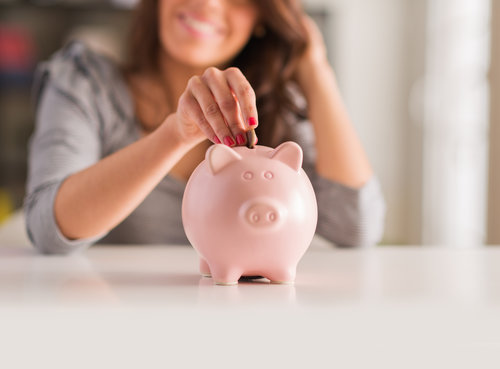
Are you thinking about buying a home and just don’t know where to start? Before you even begin looking at homes, consider how much you may need to save to make the process as smooth as possible for you, especially in the long run. While there are situations where you don’t need a large down payment for a home, having one can save you money down the road.
Saving for a down payment is slightly different than other large savings, like retirement. With those savings, you can set aside smaller amounts or invest the money. Because you will need your down payment sooner rather than later, those saving methods won’t be beneficial to you. Here are some steps to take to save up for your dream home!
1. Determine How Much You Need
There is a general rule of thumb in real estate, the rule of 28, that says your maximum mortgage payment should not exceed 28% of your gross monthly income. Sitting down with a mortgage lender will help you find out how much of a mortgage you qualify for based on that income. They will be able to tell you the recommended amount needed for a 20% down payment. Whether or not that is a requirement, a 20% down payment can get you a great price deal and reduce your monthly mortgage rate.
2. Decide When You Want To Buy
The next step will be deciding when you want to buy. This will give you either a monthly or annual goal of how much money you need to be setting aside to reach that down payment goal.
3. Choose A Savings Plan
It it usually best to avoid stocks or other risky investments when it comes to saving for a home. Consider opening a regular savings account specifically for your down payment, and make sure it is an account you use for deposit-only purposes until you’re ready to make your down payment.
4. Check Your Budget
Saving a few dollars here and there can be easy, but saving thousands of dollars may take a little more practice. First, consider cutting back on your expenses. Check your budget for things you can go without. This may be difficult, but think about what you are saving up for! If you have the chance to earn additional income, devote that extra cash directly to your savings account. These saving strategies will not only help you to buy your new home, but can create life-long habits to help you continue to save money down the road.
5. Consider An Automated Savings Plan
Even after you have adjusted your budget, pulling that money out of your checking account and putting it into a savings isn’t always easy. Once you’ve determined how much of your budget will be going into savings, consider adding a savings plan to your bank account so that the money will automatically be sent to your savings. This can remove the temptation of spending what may look like extra money in your account and ensuring that it goes where it needs to.
6. Save Your Big Deposits
Have you received a large sum of money lately? Maybe you just got married, or got a bonus at work, or that tax-return was especially big this year. Instead of spending that cash, deposit it directly into your savings account. This can reduce your savings time frame and might have you ready to buy sooner than you thought.
Saving up for a home isn't always easy, but it is always worth it! When you are ready to buy, give us a call and we will get you that home you've been dreaming of!
Comments
Post a Comment